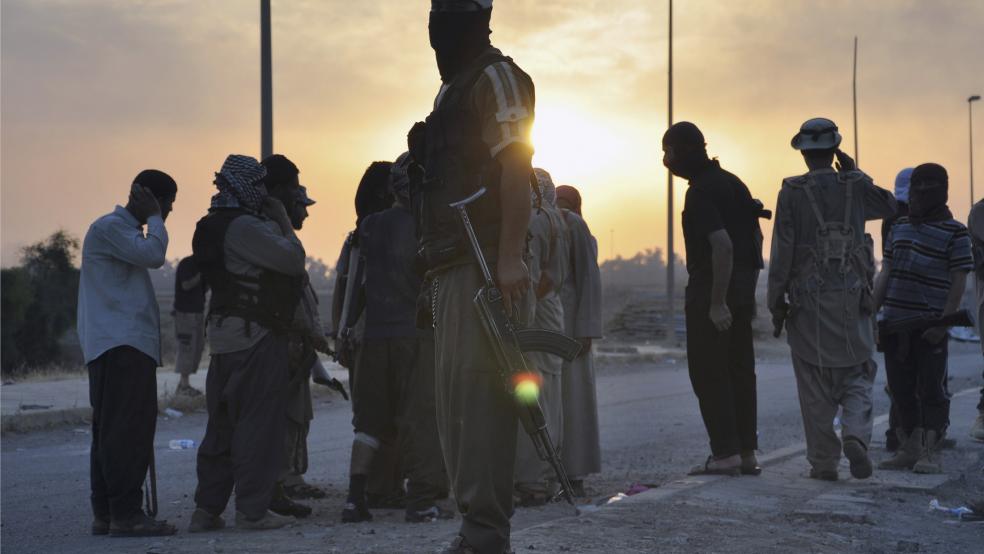As the White House dithers in its response to the rapid advance of the al-Qaeda offshoot in Iraq now known as the Islamic State, the Russian military has stepped in, sending planes and pilots to bolster the embattled government of Nouri al-Maliki.
It’s another instance of Russia outmaneuvering the United States in world affairs. The Americans had promised to send F-16s to Iraq to give Maliki air superiority over the Islamic State – but the unrest in Iraq caused contractors at the air base that was to receive the F-16s to leave the country. This prompted the Pentagon to delay delivery of the planes.
Related: Lawmakers on ISIS: Be Very Afraid
“They [the contractors] are no longer operating in Balad. So it will have an impact. It’s too soon to tell exactly what that impact is,” DOD spokesman Col. Steven Warren said.
Warren also dismissed criticism that the failure to get the planes to Maliki was slowed by Pentagon red tape. “We don’t believe our process is any slower and more deliberate than it needs to be,” he said.
This delay allowed Russian President Vladimir Putin - who has historically shown little interest in Iraq - to step in. Putin ordered 12 Sukhoi Su-25 combat fighter jets to Iraq, with five arriving on Monday.
Related: The Map That Shows How to Save Iraq
The plan was for Iraqi pilots to fly the planes. However, most Iraqi fighter pilots aren’t trained to fly the Sukhoi; they were trained to fly F-16s. Russia has now sent pilots to Iraq to fly the Sukhoi, according to reports.
This creates an uncomfortable environment, because American planes still patrol Iraqi airspace. It’s not out of the question that Russian and American jets could confront each other in the skies above northern Iraq.
The arrival of Russian jets also represents the latest example of Russia’s refusal to confront the U.S. directly. In essence, Russia has started a proxy Cold War with the United States, opposing American interests around the world, most notably in Iran and Ukraine.
Iraq is the latest confrontation.
Related: How the Collapse of Iraq Would Affect America
“It is apparent the Putin government is looking at any opportunity not to confront the U.S. directly but to find openings to demonstrate that it is still a power that can play the game,” Edward Goldberg, a professor in international political economy at Baruch College, said in an interview. “In some respects it is a game of grudges – ‘you can throw us out of the G8 but I can still make life difficult for you.’”
Prodding Washington
The planes are simply another way for Putin prod Washington while continuing to remind the world about just how wrong the United States was on Iraq.
Putin has long delighted in pointing out how badly the Iraq War went for the Americans. Over the years, he has made sly references, usually in the context of how the Americans mismanaged the war.
Prior to the invasion, Putin was one of the loudest critics of the war. “The use of force abroad, according to existing international laws, can only be sanctioned by the United Nations. This is the international law. Everything that is done without the UN Security Council’s sanction cannot be recognized as fair or justified,” said Putin. “I am being as restrained as I can be when I choose these words.”
Putin added at the time, "But as for Iraq, this is a separate matter. There were no international terrorists under Hussein. This is a separate problem.”
Related: Iraq Has Obama – and America – Over a Barrel
As the war progressed, Putin and his deputies often made scathing remarks about American progress there. In 2012, Russian Foreign Minister Sergei Lavrov called the war a “total failure.” “We are greatly alarmed by what is happening in Iraq. We warned long ago that the affair that the Americans and the Britons stirred up there wouldn’t end well,” Lavrov said.
According to Goldberg at Baruch, the arrival of Russian planes is another reminder from Russia about the U.S. failure in Iraq. “It’s totally a game of trying to demonstrate power and thus recognition by being an irritant,” he said.
Protecting Russian Interests
Robert Freedman, a professor of political science at Johns Hopkins University and an expert on Russia, says that the chaos in Iraq also gives Russia the opportunity to fight Islamic extremism. The South Caucuses are home to many Sunni Muslims, who could be attracted to a Sunni caliphate.
“The Russians want to fight Islamic extremism. You try to move troops down through the desert and they’re vulnerable to interdiction from jets,” he said.
Freedman added that Russia also has investments in Iraqi oil fields. In March, Russia’s Lukoil opened the second-largest field in Iraq. “If the caliphate should win, forget about the oil investments,” he said.
Top Reads from The Fiscal Times:





